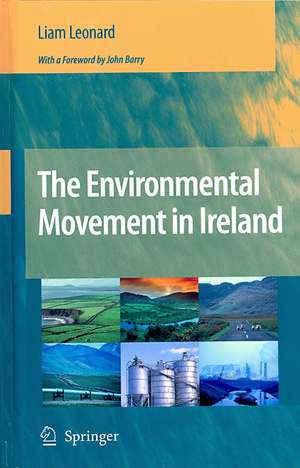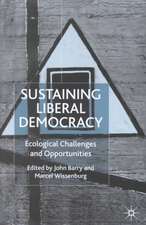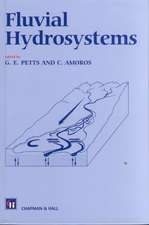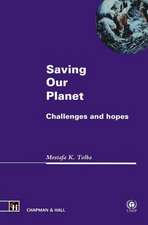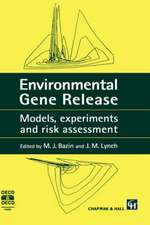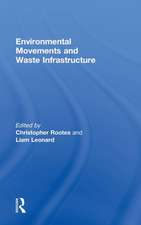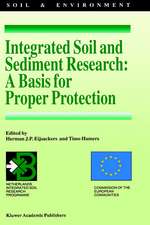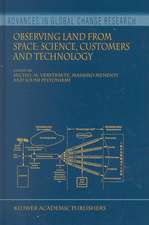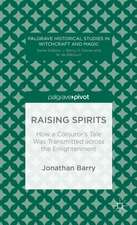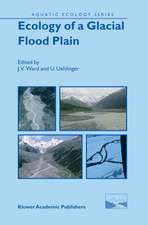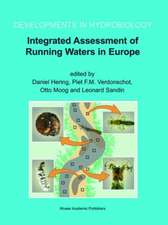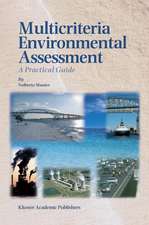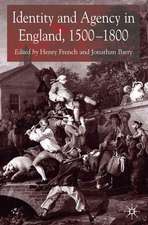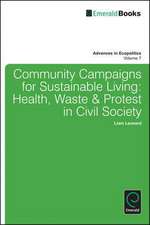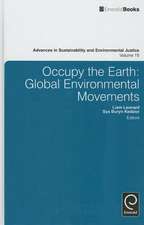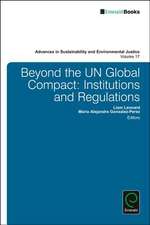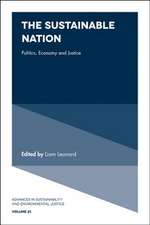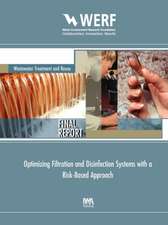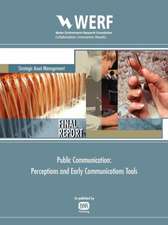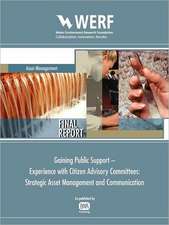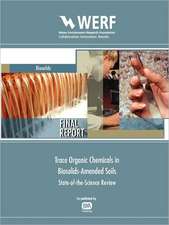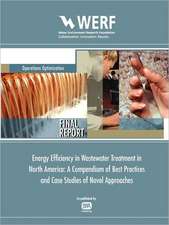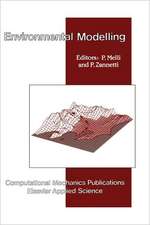The Environmental Movement in Ireland
Autor Liam Leonard Cuvânt înainte de J. Barryen Limba Engleză Hardback – 3 dec 2007
| Toate formatele și edițiile | Preț | Express |
|---|---|---|
| Paperback (1) | 638.24 lei 43-57 zile | |
| SPRINGER NETHERLANDS – 19 oct 2010 | 638.24 lei 43-57 zile | |
| Hardback (1) | 644.49 lei 43-57 zile | |
| SPRINGER NETHERLANDS – 3 dec 2007 | 644.49 lei 43-57 zile |
Preț: 644.49 lei
Preț vechi: 758.23 lei
-15% Nou
Puncte Express: 967
Preț estimativ în valută:
123.32€ • 129.09$ • 102.64£
123.32€ • 129.09$ • 102.64£
Carte tipărită la comandă
Livrare economică 31 martie-14 aprilie
Preluare comenzi: 021 569.72.76
Specificații
ISBN-13: 9781402068119
ISBN-10: 1402068115
Pagini: 252
Ilustrații: XVI, 234 p.
Dimensiuni: 155 x 235 x 25 mm
Greutate: 0.53 kg
Ediția:2008
Editura: SPRINGER NETHERLANDS
Colecția Springer
Locul publicării:Dordrecht, Netherlands
ISBN-10: 1402068115
Pagini: 252
Ilustrații: XVI, 234 p.
Dimensiuni: 155 x 235 x 25 mm
Greutate: 0.53 kg
Ediția:2008
Editura: SPRINGER NETHERLANDS
Colecția Springer
Locul publicării:Dordrecht, Netherlands
Public țintă
ResearchCuprins
Politics.- The Environmentalism Debate.- Irish Environmental Activism: From Woodquay to the ‘Celtic Tiger’.- The Environmental Protection Agency and the Irish Green Party.- Communities.- Rural Sentiment and the Irish Environmental Movement.- Rural Sentiment as Ecological Capital.- Understanding Collective Action.- Campaigns: Phase One.- No Nukes: Carnsore Point.- The Anti-toxics Movement.- Mining: Tynagh and Donegal.- Campaigns: Phase Two.- Conservation: Mullaghmore.- Anti-incineration: Galway, Meath and Cork.- Resources: The Rossport 5 (Shell to Sea).- Roads: Glen of the Downs, Carrickmines and Tara.- Conclusion: Mapping the Consequences of Environmental Activism.
Textul de pe ultima copertă
Collective responses to Ireland’s dramatic transformation from a primarily agrarian and rural society to an industrialised economy obsessed by rapid growth and development occurred in two phases:
Phase One took place between the "No Nukes" protests of the late 1970’s when campaigns targeted multinational plants or infrastructural projects perceived as a pollution threat during years of economic stagnation.
Phase Two occurred after economic buoyancy was achieved, as the demands of rapid growth threatened communities, the environment and Irish heritage in the face of major infrastructural projects such as roads, incinerators and gas pipelines.
Starting with the Woodquay protests in Dublin, the "No Nukes" protests at Carnsore Point, the "Shell to Sea" campaign in Mayo and the campaign to save Tara from destruction, these significant ecological campaigns, based on the community’s localised sense of place or rural sentiment, have formed the response to these challenges which are analysed here using social movement theories such as resource mobilisation, political opportunity, framing and event analysis.
Phase One took place between the "No Nukes" protests of the late 1970’s when campaigns targeted multinational plants or infrastructural projects perceived as a pollution threat during years of economic stagnation.
Phase Two occurred after economic buoyancy was achieved, as the demands of rapid growth threatened communities, the environment and Irish heritage in the face of major infrastructural projects such as roads, incinerators and gas pipelines.
Starting with the Woodquay protests in Dublin, the "No Nukes" protests at Carnsore Point, the "Shell to Sea" campaign in Mayo and the campaign to save Tara from destruction, these significant ecological campaigns, based on the community’s localised sense of place or rural sentiment, have formed the response to these challenges which are analysed here using social movement theories such as resource mobilisation, political opportunity, framing and event analysis.
Caracteristici
Reviews the most significant ecological campaigns in Ireland during the last four decades Examines key themes in Irish environmental politics and the main components that define such events Analyses environmental collective action and campaigns using social movement theories including resource mobilisation, political opportunity, framing and event analysis
